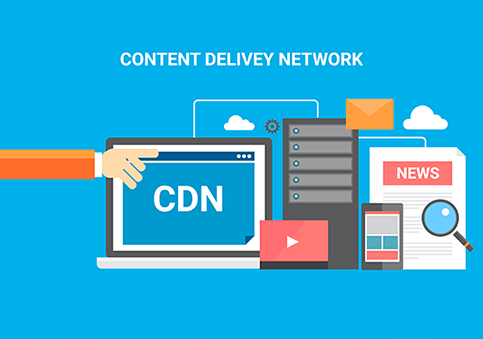FONT AWESOME CDN

In every site owner’s journey to world domination, one thing immediately comes to mind: Content Delivery Networks. For one, CDNs are amazing at delivering content efficiently. Not only do they reduce latency, but site owners also have the option to personalize content depending on location. That established, what’s the Best CDN there is in the market today? Even more, have you ever considered how to build a CDN yourself?
While that entails a lot of effort, engineering, and commitment, it’s nice to be able to get into the mind of what CDN providers factor in the most. And so if you’re looking for an article that’ll help you explore how to build a CDN yourself, you’ve found it. Keep reading to learn more!
Four Steps to Build your own CDN
- CDN can be build using cloud instances or physical machines.
- Find the best ISP and routing
- Origin server and PoP (points of presence)
- CDN and caching software
DNS servers
Firstly, CDN is largely about speed. So if there’s anything you should consider the most, it’s making sure that your DNS servers are quick. So how do we do that? Understand that the DNS lookup has to traverse the entire globe and getting your site download to reach the edge server—meaning a visitor’s nearest server—is only half of the job.
The Border Gateway Protocol is what network providers utilize to relay to each other how distant they are and which networks they can reach. More often than not, the end-user ISP takes the quickest route to reach the endpoint. That way, the IP addresses are consistently advertised in several locations and the DNS request is routed to the nearest server. This is what is referred to as the Anycast.
Anycast
Now you may be wondering: shouldn’t my website download just rely on the BGP Anycast? The quick answer is no.
Here’s why:
BGP Anycast will demand a pool of (at least) more than 200 IP addresses and will need control over the network hardware. To most internet DIY-ers, that can be incredibly expensive. Next, they’re unstable. Know that web requests call for securing a connection to obtain content despite DNS requests needing only a single packet for two directions.
Should a connection not be stable or, for whatever reasons, the route shifts, the web connection may be altered. This can be too large and complex for a project that’s designed to be comprehensive and feasible.
Also, it’ll make very little sense to do that since BGP route calculations don’t promise the quickest back and forth expedition.
Build your own CDN : setting up content distribution and certificates
Because it’s clear we can’t run Anycast on our own, this automatically means we can’t do the same with DNS servers. The next best thing is to look for a domain name system service. There are about three good ones you can consider: DNS Made Easy, Dyn, and Amazon Route 53. Once you’ve chosen your DNS provider, add your domains and then put in the IP addresses.
Tip: because there are multiple servers strategically positioned around the entire planet, utilize as many DNS records as you can. Under this are two things:
Content Distribution – this is a simple but lengthy process, but the bottom line is that all of your edge notes should house the same media and content.
Certificates – this next step is even longer. When you’ve reached this part of the process, you must generate a certificate for every edge location you have. Look for a certificate authority to do this for you.
Once you’ve set up everything you need to keep this running, congratulations! It’s a lot of work, but for site owners and IT-savvy pros who are up for the challenge, this should be a fun activity to keep track of. It can be a tiring thing to have to assess every little step of the way, but hey, it works for some people. If you don’t know where to start exactly, there are plenty of CDN tutorials you can find on Google. There’s also a ton of free CDN to help you get started.
If you’d rather just leave these things to the experts, that’s okay, too. Given how competitive the online space already is, it’s important for enterprise leaders, creatives, and entrepreneurs alike to focus on improving their brand and what they put out.
For more information about how CDNs can help expand your business reach, reach out to one of the fastest-rising CDN Service providers today! Interested in seeing what BelugaCDN can do for your company? Get a free trial and find out for yourself!